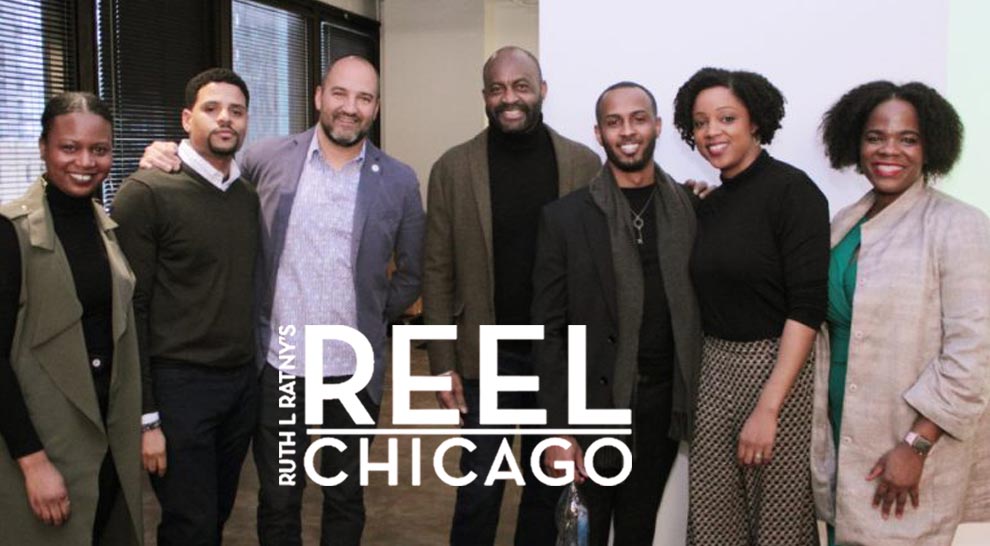C-K panel talks about “Changing the Narrative.”
Reel Chicago – March 8, 2019
By Daniel Patton
Cramer-Krasselt’s Changing the Narrative panel discussion on February 26 was a journey into the complexities of being Black in America.
For nearly an hour, Burrell Communications Chief Creative Officer Lewis Williams, Inclusion Nation Founder Michelle Silverthorn, Creative Consultant Mark-Anthony Marshall, C-K National Broadcast Buyer Kiara Caridine, and C-K Senior Desktop Services Specialist Brandon Crichlow shared opinions and experiences with the room full of professionals who joined the conversation at C-K’s office on Michigan Ave.
Held in honor of Black History Month, the event was designed as “an open dialogue about the lack of diversity in advertising,” with special emphasis on the fact that only 5.8 percent of the advertising industry’s work force is African American.
At first, that’s where things went. C-K’s VP/Talent Acquisition Manager Aishah Belin, who moderated with VP/Creative Manager Craig Likhite, opened the discussion by asking the panel to theorize on why the statistics are so low.
Caridine, who was largely unfamiliar with advertising when she left a Sales Assistant job with the CW Network to join C-K three years ago, suggested that the problem exists partly because “people aren’t exposed at an early age.”
“There are so many different avenues that go into putting something on screen,” she explained. “If we were to start in high school and go to these job fairs and explain what we do on a day to day basis, that’s a good start.”
Marshall, who served in the Marine Corps for four years and completed a tour of Afghanistan before landing his first industry gig, agreed. “To be honest,” he said, “I knew nothing about advertising until I was hired in it.”
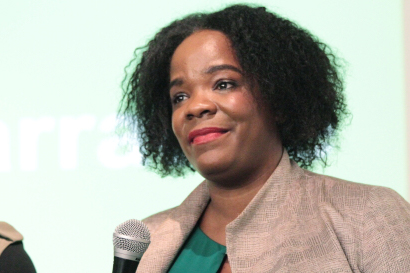
But when Silverthorn described her thoughts about industries controlled by “white leaders,” the conversation got a little deeper.
White leaders, she said, have few if any Black friends. They live in white neighborhoods, run in white circles, rely on white peers and, therefore, cannot begin to understand or address the issues facing African Americans.
As a result, today’s corporate diversity is based on the one-sided notion that everything will be okay if everyone just acts like they’re white.
“We are told there is space for you to succeed, but not (as) who you really are,” she said. “You can succeed by pretending to be someone else.”
Williams was quick to concur.
“We all know what the problem is, so let’s stop acting like we don’t,” he said. “The main thing is that I think this industry does not recognize the value in minorities, because once someone recognizes the value in you, they use you.”
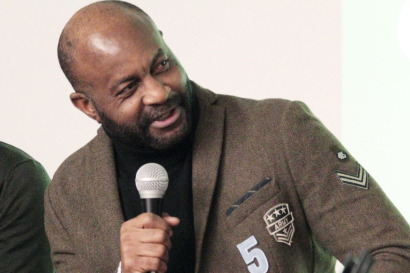
No doubt, the conversation ventured into some rather intense areas; but the mood was consistently warm and friendly. The panelists helped establish the tone by describing a “fun fact” when they introduced themselves at the start of the discussion.
Crichlow used to be a lifeguard. Williams is a “big Trekkie fan.” Silverthorn almost won a new car on Price is Right. Marshall joked about his military service by saying, “I can fight a little.” And Caridine is a huge Batman fan who was “very disappointed” by the franchise’s recent installments (but she thinks that “the Lego movie was great.”)
These light-hearted revelations set the stage for intimate, gracious and enlightening moments to follow. Here are just a few.
Code Switching
A few of the panelists indicated that they behave differently in the office than they do at home. Marshall handles this dynamic by using the “adapt and overcome” skills that he learned as a Marine.
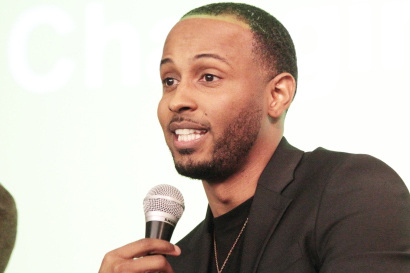
“This industry, like this country, was not set up for how diverse it is,” he noted. “In order to succeed, we have to be strategic about how we integrate with people, so that’s why African Americans more often times than not have to code-switch. So if I’m on the block (it’s) ‘Yo, what up dude, you know what I’m talking ‘bout.”
At this point, Silverthorn interrupted to tease him — “is that how you talk on the block?” After a few laughs, he continued.
“But when I’m in the office environment, I have to switch,” he said. “That should be okay. It’s not changing who you are. It’s adapting to your environment.”
Black popular culture in advertising
Likhite described several examples of cultural appropriation gone wrong, including Kendell Jenner joining a protest march in a big budget Pepsi spot and a woman appearing to turn Caucasian with the help of soap in a Dove animated gif.
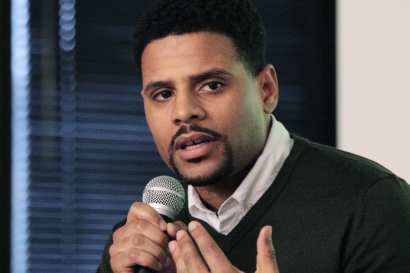
According to Crichlow, these flawed concepts would not have survived in an agency that truly understood Black culture.
“Ideas that should be stopped kind of in the process are allowed to continue,” he said. “It’s kind of like being a wounded deer … and it should be shot.”
Williams concurred.
“One of the things I see that happens a lot is that people misuse culture … and culture is sensitive,” he said. “Not that they were trying to be racist; they were trying to be cool. And then by being cool and making a misstep, they did something that was racist. You got to be cautious about how to use culture, and understanding culture, especially when it’s not yours.”
Diversity training
Silverthorn — who earned a Bachelor Degree from Princeton University and then graduated from the University of Michigan law school — explained that she founded the diversity education and consulting firm Inclusion Nation because, “I don’t like a lot of diversity training.”
“You sit down and watch a video and you’re done,” she continued. “(Corporations) don’t want to change because they’re making a lot of money being the way they are right now.”
A successful effort, she said, must go beyond the “business case” justification and get into personal feelings.
“It has to be something that really gets to your heart, that makes you want to change, and that’s a start,” she said. “Once you got people on board, you need to ride that momentum. I make people cry a lot in my presentations.”
Empowerment
At one point or another during the conversation, each of the panelists indicated that merely hiring Black people is not enough.
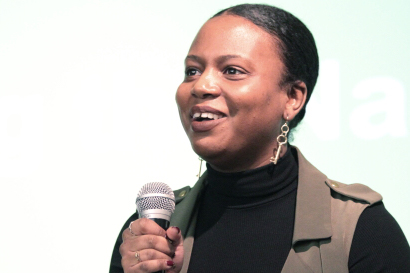
“We need a seat at the table,” said Caridine. “We also need a voice at the table.” “It’s one thing to be a face in the room,” said Crichlow. “It’s another to be a voice that’s actually listened to.”
But Silverthorn — who was born and raised in Jamaica where, she explained, “we are 95% Black” — put it into a perspective that
“I’ve lived in this country for eighteen years and I am still not used to the fact that I am a marginalized minority, and it hurts every day,” she said. “If you are a young person, and you are a Black person specifically, get out of this country and go to another country and feel what it is like to be a majority. Go to Wakanda. Go to Jamaica. Go to Nigeria.”
More News
- March 1, 2019 C-K’s Work/Life: Don Baiocchi of Paleo Gluten-Free Guy.
- February 26, 2019 Amazon SEO: improving your Amazon product rankings.
- February 13, 2019 Gameday: The Cayenne Model Wall.
